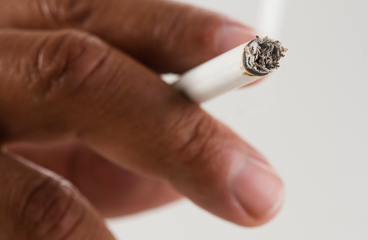
Overview
Secondhand smoke comes from the burning end of a cigarette, cigar, or pipe and the smoke that a smoker exhales. The smoke contains nicotine and many other harmful chemicals. Breathing secondhand smoke can cause or worsen health problems including cancer, asthma, coronary artery disease, and respiratory infections. It can make your eyes and nose burn and cause a sore throat.
Secondhand smoke is especially bad for babies and young children whose lungs are still developing. Children who breathe secondhand smoke are more likely to have ear infections, pneumonia, and bronchitis in the first few years of their lives. Secondhand smoke can make asthma symptoms worse in children.
If you are pregnant, it is important that you not smoke and that you avoid secondhand smoke. You are more likely to give birth to a baby who weighs less than expected (low birth weight) if you smoke. And your baby may have a greater risk for sudden infant death syndrome (SIDS). Babies whose mothers are exposed to secondhand smoke during pregnancy have a higher risk for health problems.
Secondhand aerosol from vapes does not contain as much nicotine and other harmful chemicals as secondhand tobacco smoke does. But there is a concern about possible health risks from secondhand aerosol exposure.
Follow-up care is a key part of your treatment and safety. Be sure to make and go to all appointments, and call your doctor if you are having problems. It's also a good idea to know your test results and keep a list of the medicines you take.
How can you care for yourself at home?
- Do not smoke or let anyone else smoke in your home. If people must smoke, ask them to go outside.
- If people do smoke in your home, choose a room where you can open a window or use a fan to get the smoke outside.
- Do not let anyone smoke in your car. If someone must smoke, pull over in a safe place and let them smoke away from the car.
- Ask your employer to make sure that you have a smoke-free work area.
- Help your family and friends who smoke to quit by encouraging them to try. Tell them about treatment resources. Having support from others often helps.
- If you smoke, quit. Quitting is hard, but there are ways to boost your chance of quitting tobacco for good.
- Use nicotine replacement such as gum, patches, or lozenges. Call a quitline. Ask your doctor about stop-smoking programs and medicines.
- Keep trying.
Current as of: August 20, 2024
Author: Ignite Healthwise, LLC Staff
Clinical Review Board
All Ignite Healthwise, LLC education is reviewed by a team that includes physicians, nurses, advanced practitioners, registered dieticians, and other healthcare professionals.

